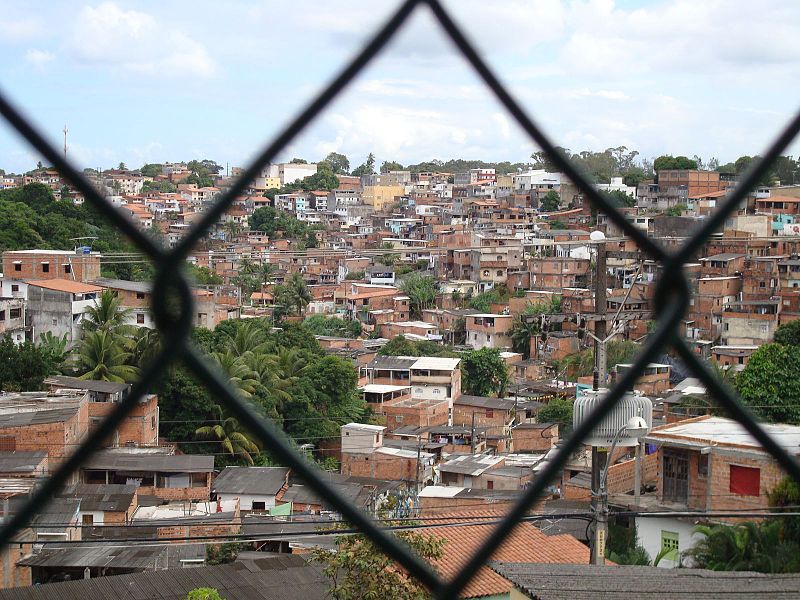In 2002 the movie Cidade de Deus (City of God) brought to the eyes of many a picture of Brazil that was uncompromising but gave a glimpse of life inside one of Brazil’s many favelas. Telling the story of an ordinary young man and his struggle to survive in a rough, tough world, the movie won over 50 awards and received four Oscar nominations. But how does the drug-fueled gun-toting world of the movie compare with the reality of life within the favelas in Brazil?
Brazilian Favelas
The term favela is often confused with slum, but if you travel in Brazil you are likely to find people quick to point out the difference. While slums are typically temporary make-shift structures a favela is a more permanent feature of the Brazilian urban landscape. Indeed those who occupy a plot of land for five years acquire the right to remain there. It is not unusual for people to be born in a home in a favela and live their entire life there.
Salvador de Bahia
Favelas in Brazil are not confined to the two southern megacities. In Salvador de Bahia there are around 100 favelas making up the neighborhoods surrounding the city center. Precise census figures are hard to obtain but anything from 15 to 25% of the city’s population is thought to live in one of these impoverished communities.
While no one denies there is a problem with crime and drugs, there are plenty of signs to suggest that we should not write off the favelas or their residents as beyond hope. In recent years in the favelas of Salvador many initiatives have sprung up to try and improve the lives of residents and provide opportunities for young people. Internet access, improved sanitation and investment in housing have all helped foster hope for a better future, while favela tours are bringing tourists to the region into contact with local people in a way that should provide a mutual benefit.
Image of Brazil
Another positive sign is the way that the Brazilian media have slowly started to redress the perception that outsiders, including the majority of Brazilians, have about those who live in the favelas. A number of TV shows and movies have recently focused on the ordinary lives of the 95% of favela residents who have no involvement with criminal gangs.
And as the Brazilian economy continues to grow it is likely that more of the poor will move socially upwards into the middle classes. As a result they are likely to relocate to modest city apartments and it is expected that the population of favelas will slowly start to fall.
Photo | AlmostBrazilian, Wikipedia
From PassportToIberostar.com

Comments